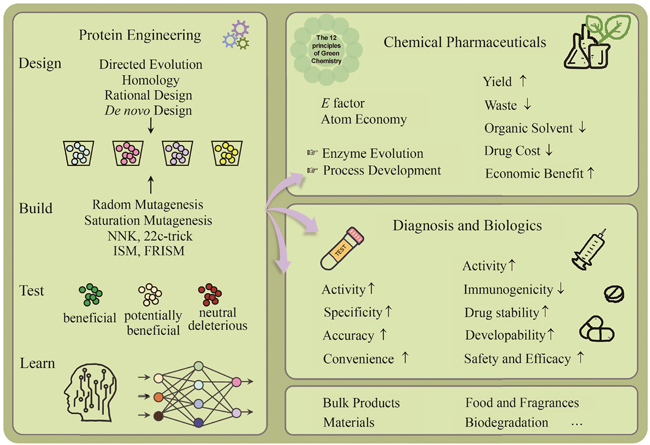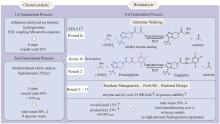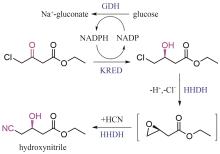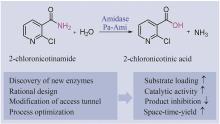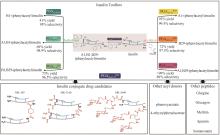|
|||||||||||||||||||||||||||||||||||
|
Applications of protein engineering in pharmaceutical industry
Synthetic Biology Journal
2025, 6 (1):
65-86.
DOI: 10.12211/2096-8280.2024-061
Protein engineering performs specific designs and modifications on proteins through directed evolution, semi-rational or rational design, computer-assisted design, and so on. The engineered proteins, with improved properties, have significant applications in food, medicine, fuel, and material industries. For the chemical and pharmaceutical industry, engineered enzymes can serve as efficient biocatalysts for the synthesis of active pharmaceutical ingredients (API) and their intermediates, aligning with the concepts and principles of green chemistry and manufacturing. For the biopharmaceutical industry, the engineering of peptide or protein modifying enzymes can boost the efficiency in preparing drug candidates, while engineered diagnostic enzymes can make detection more accurate and sensitive. Moreover, protein engineering can improve the bioactivities of biological drugs such as therapeutic enzymes and antibodies, increase stability, and mitigate immunogenic response for their safety and efficacy. Here, we review the tremendous progress in protein engineering, elucidate its importance in the research and development of chemically derived drugs and biologics, and provide examples of its applications. These examples encompass the discovery of enzymes or antibodies, the process of protein engineering, and the subsequent economic advantages. We aim to showcase the practical implementation of protein engineering in the pharmaceutical industry and facilitate technology transfer, thereby fostering seamless integration between research, development, and industrial production. Furthermore, we discuss challenges such as cost-effectiveness and market changes in the synthesis of API, and multi-target optimization, long cycle and high risk in the discovery and development of biopharmaceuticals. Finally, we look forward to the prospects of protein engineering in pharmaceutical industry. In the future, automated pipelines consisting artificial intelligence and self-driving laboratories will accelerate the design-build-test-learn cycle, leading to rapid progress in molecular design and discovery.
Table 2
Applications of protein engineering in the biopharmaceutical industry
Extracts from the Article
综上,蛋白质工程不仅能够提升用于结构修饰的工具酶的催化特性,提高诊断酶/抗体的特异性以及生物化学检测的准确性,还可以在一定程度上解决治疗酶和治疗抗体等蛋白药物[151]的多目标优化问题,在生物药产业中发挥着十分重要的作用(表2)。蛋白质工程加快了生物制药的创新,为业界开发出更多生物大分子药物提供了技术保障。
Other Images/Table from this Article
|
